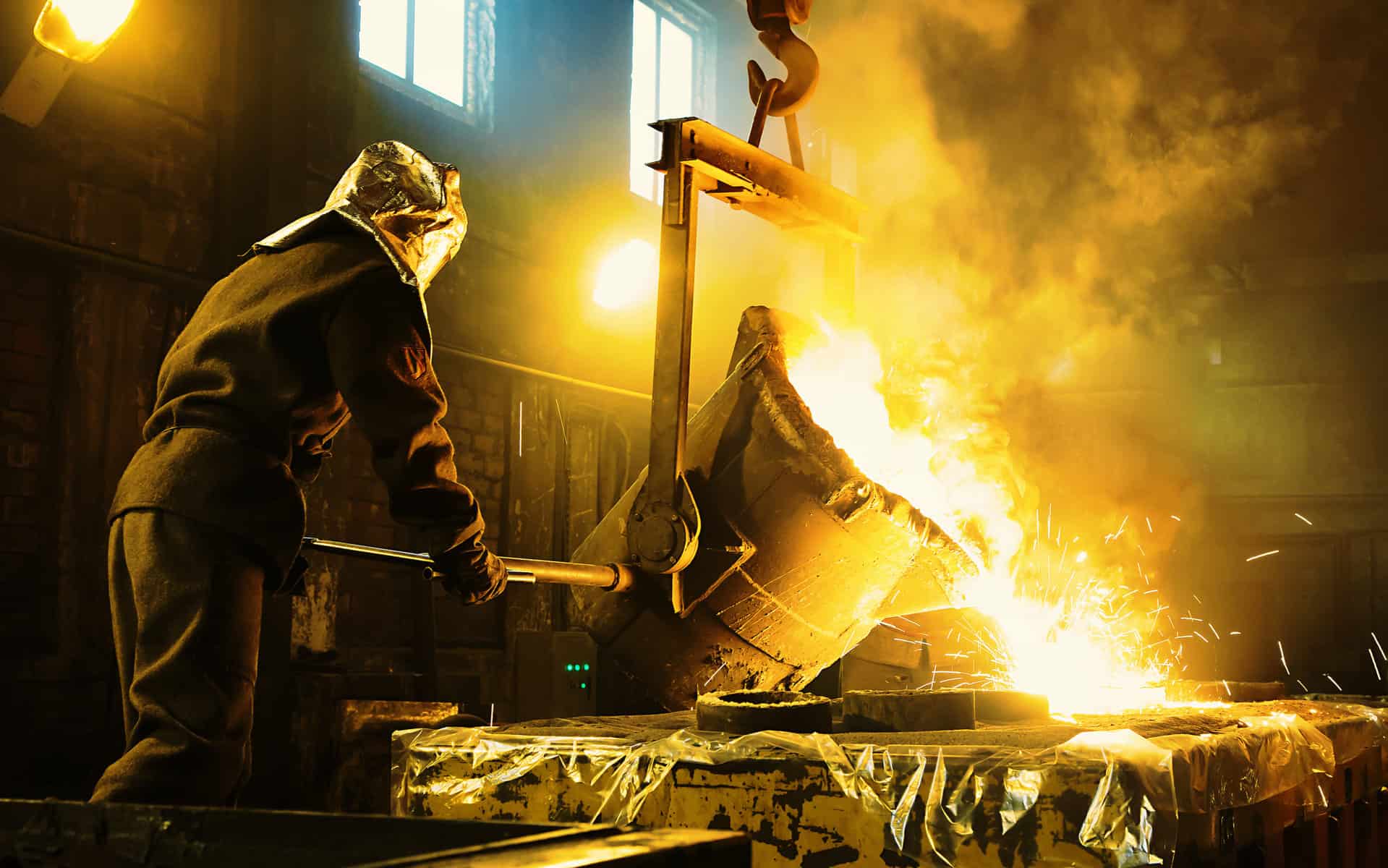MacKay expressed issues concerning the lack of dependable information on which the ban and the proposed extension of the export ban are primarily based.
Authorities is being accused of persisting with the export ban on ferrous and copper scrap, to not finish infrastructure theft – however to guard the funding portfolio of the Industrial Improvement Company (IDC).
XA International Commerce Advisors says in its report regarding the scrap metallic panorama in South Africa that the IDC’s publicity within the scrap-consuming business (foundries and mini mills) is round R14 billion – 10 occasions the market cap of metal producer ArcelorMittal.
ALSO READ: Gordhan requires these concerned in scrap metallic theft to be charged with treason
The IDC is a wholly-owned state finance entity and stories to the Division of Commerce, Business and Competitors (dtic).
The dtic launched the export ban in 2022, initially for six months, however it was prolonged for an additional six months on the finish of July this 12 months. It’s now proposed to increase it for an additional six months.
“Authorities’s intervention within the scrap metallic sector is so massive that it has distorted the market, probably closing ArcelorMittal’s Newcastle operation leading to large job losses,” says XA International Commerce Advisors CEO Donald MacKay, talking at a briefing on Wednesday.
“I don’t imagine the intention to place the ban in place has something to do with the theft of infrastructure. I’m fairly positive the ban is put in place to take care of the IDC’s funding portfolio.
“If you’re invested within the scrap-consuming sector, the export ban is solely a cash printing machine.”
The IDC has elevated its publicity to the scrap-consuming business by greater than R3.3 billion prior to now 4 years.
Moneyweb requested the workplace of Minister of Commerce, Business and Competitors Ebrahim Patel for touch upon the accusation regarding the intention behind the ban.
ALSO READ: Scrap metallic theft: Crime is costing SA tens of millions each day
His spokesperson responded: “The minister will take into account all inputs and can rigorously weigh the influence of the scrap and waste metallic ban on the metal value-chain towards the substantial injury completed to infrastructure and the related disruptions to enterprise and communities stemming from inter alia cable and railway line theft.”
‘Supportive’ interventions
The scrap metallic sector is at the moment supported by three intervention programmes:
- The value choice system (PPS);
- Export duties; and
- The export ban.
MacKay says South Africa produces three million tons of scrap metal each year.
ALSO READ: Cable theft: Gordhan needs scrap metallic exports stopped
The PPS forces scrap recyclers to supply their scrap at a minimal low cost earlier than they’re allowed to export.
Within the case of ferrous scrap, it’s a low cost of 30%. “Because of this we extract worth from the upstream business to the downstream market at a minimal of R4.5 billion a 12 months,” says MacKay.
In response to the Steel Bulletin, the present world value for the most typical grade of scrap metal is R6 185 per ton. The PPS value is R4 758 – a 3rd of the worldwide value.
The PPS guidelines have turn into more and more difficult and now present that when a recycler finds a purchaser, it should cowl the transport prices related to getting its product to the client.
Though the intention was to exchange the PPS with export duties, each programmes are nonetheless working concurrently.
Between August 2021 (when export duties had been imposed) and September 2023, R1.4 billion was paid in export duties on scrap metallic that nobody wished to purchase regionally.
“This is a gigantic elimination of productive capital from the economic system for product not even in demand by the scrap customers,” XA International Commerce Advisors says in its report.
In response to MacKay, since 2016 there was nearly no export of copper.
ALSO READ: Eskom worker allegedly steals structural cross members of a pylon, sells to scrap metallic vendor
“We’re not denying that copper infrastructure is being stolen, however it isn’t leaving the nation as copper infrastructure or copper cable,” he says.
“So we have now an export ban on a product that’s not being exported.”
Theft information secrecy
MacKay expressed issues concerning the lack of dependable information on which the ban and the proposed extension of the export ban are primarily based.
His agency and the Steel Recyclers Affiliation have filed requests beneath the Promotion of Entry to Info Act to Patel’s division, the South African Police Service (SAPS), Transnet, Eskom and the Passenger Rail Company of South Africa (Prasa).
The general response was that the knowledge is “confidential”.
The secrecy makes it inconceivable to grasp on what data the proposal to increase the ban is predicated. There isn’t a approach of understanding whether or not the coverage selections are rational or not.
ALSO READ: Scrap metallic hunters depart Joburg, Ekurhuleni at the hours of darkness
“Billions of rands of financial worth are being transferred from producers, mines, and development firms to scrap metallic customers, lots of that are invested in by the IDC, but each piece of knowledge which may help these selections is stored secret,” says MacKay.
“If the interventions had been working, it’s onerous to not think about authorities making all the pieces accessible.”
XA International Commerce Advisors says until onerous proof of the discount in theft of infrastructure because of the ban may be produced, the ban must be instantly lifted.
“If this isn’t completed, we have now moved from against the law preventing motion to state help for its personal funding portfolio,” the agency says.
Patel’s workplace says it doesn’t want to remark so near the deadline as a call has not been taken on whether or not or to not prolong the ban.
This text was republished from Moneyweb. Learn the unique article
